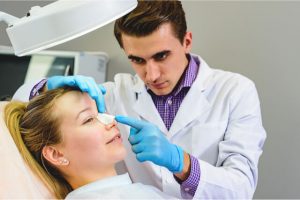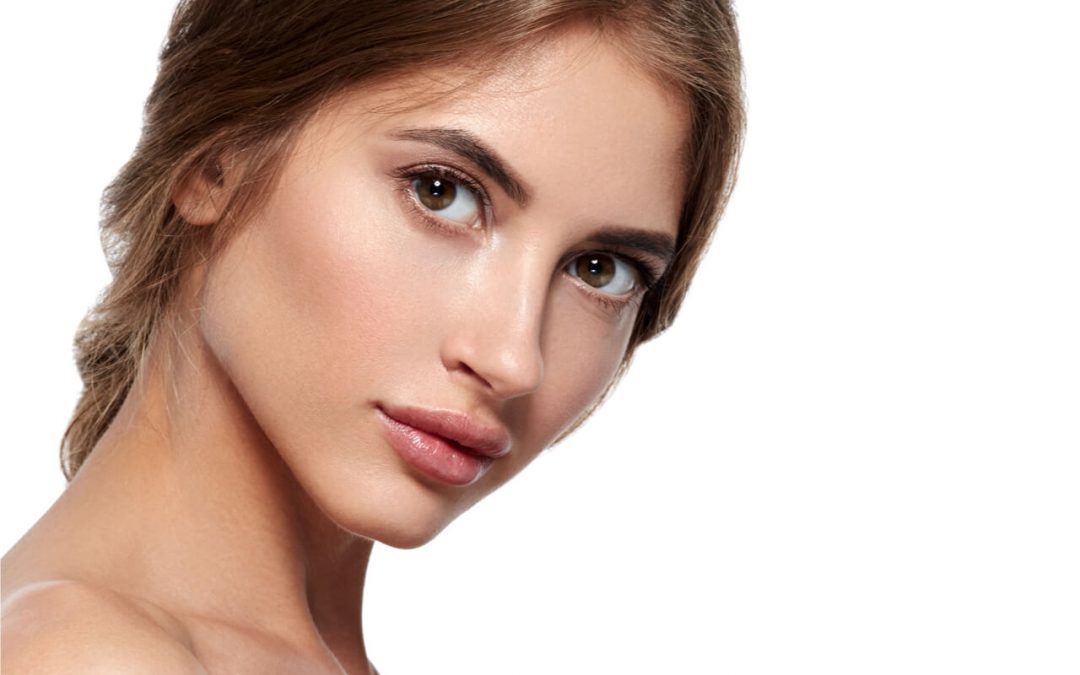The nose has a complex structure from the bridge, nostrils, and the nose tip. A nose shaping procedure such as Rhinoplasty may have different results depending on a person’s needs. But, doctors mention how it is essential for patients to take notes of rhinoplasty recovery tips. After getting a nose job, the first thing that patients do is to rest and pamper themselves. The right rhinoplasty recovery tips often have to remind every person to be patient with their healing nose job. The consequences don’t only involve physical problems but also financial costs. Here are some rhinoplasty recovery tips, facts, and information on what to expect.
Are There Any Risks During Rhinoplasty Recovery?
Nose reshaping surgery can be tough to recover from if you’re unprepared for the risks. That explains why it’s important only to trust a certified and licenced cosmetic doctor to perform rhinoplasty. Any accidents that deal damage on the nose can lead to issues like loss of breath, smell, and even cancer.
We recommend not wasting your hours and money by following these rhinoplasty recovery tips to enjoy your beautiful new nose fully.
7 Rhinoplasty Recovery Tips That Provide Best Results
Recovery tips from a nose job don’t require rocket science. There are a few ways that you can speed up the process of healing by asking your certified doctor. But, we also recommend these rhinoplasty recovery tips after your in-office operation.
1. Don’t Eat Chewy Or Hard Food
Moving your soft tissues and soft muscles while chewing and eating can open wounds from your nose job. Mostly, hard foods like meat, pastries, raw vegetables, and fruits may start to lead to skin contraction, scars, and unfavourable look of the cartilage.
2. Avoid Touching Your Nose On The Surgery Area
Recently finished will have sensitivity since the pain from the surgical tools is still fresh. Your doctor may not advise you to scratch the itch on your nose since you can contaminate it with bacteria.
But, don’t forget to clean the surgical site often and replace the gauze often to prevent bacterial infection. If you do see symptoms of bleeding or pain, contact your previous doctor or visit a hospital right away.
3. Maintain A Healthy Diet And Avoid Unhealthy Habits
Fruits, vegetables, and the right diet plan can keep your healthy body health better. If you’re taking a diet plan, make sure to only go on soft foods diet. Any facial movements can deform your face. Particularly, allergies, reactions from ingredients such as spicy or hot food can inflame your nose.
Although studies show that these concerns are rare and manageable, it is still best to avoid any complications. You may ask your doctor what the specific diet plan for your rhinoplasty procedure are.
4. Take Painkillers Under Your Surgeon’s Supervision
Pain is normal for any surgical treatment, particularly Rhinoplasty or nose jobs. Patients can take pain relief to prevent pain and inflammation, which may swell your nose further. Yet, you need to ask your doctor for the right medicine. Some drugs can conflict your body’s medical condition and healing.
5. Plan Your Recovery And Rest
One of the crucial things that people often forget in a busy lifestyle is to rest. But, expect your rhinoplasty specialist to advice a week or two of rest before returning to your tasks. Schedule your and make plans to have an efficient balance of returning to work or school right after.
6. Avoid Vigorous Physical Activities

If you’re expecting to head back to the gym and show off your new nose, you may want to wait a little longer. Moderate to vigorous physical activities can deform your Rhinoplasty. Yet, you can still try lifting dumbbells stretching your arms or walk around the house.
7. Listen To Your Doctor’s Advice
Lastly, post-operative care and appointments are crucial to managing how your nose is healing correctly. Doctors guarantee successful rhinoplasty procedures since only licensed and trained doctors are allowed to perform the practice.
Patients that follow these rhinoplasty recovery tips may expect to have better results. Addressing inflammation, side – effects, and risks will help show intended outcomes for your nose .

